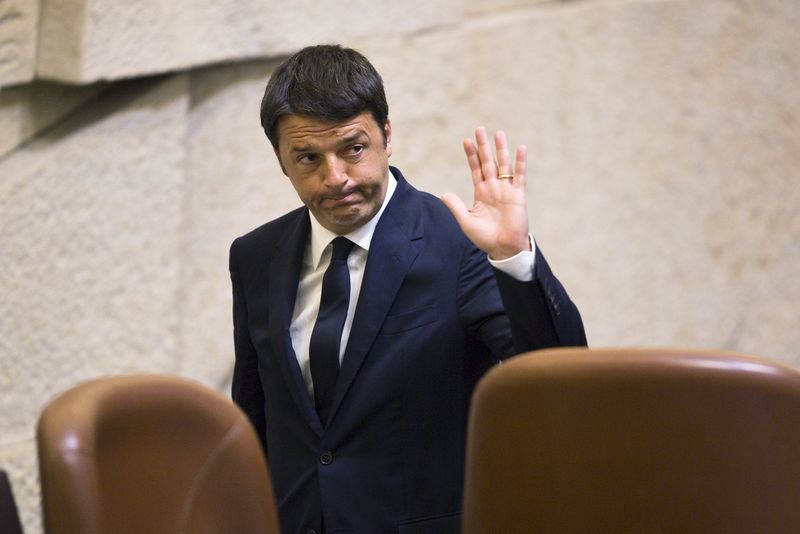By Gavin Jones
ROME (Reuters) - Italian Prime Minister Matteo Renzi's mounting problems were compounded on Friday when data showed a long-awaited economic recovery is already losing steam.
Not much has been going right for Renzi lately. His approval ratings have plummeted, his governing party is deeply divided, his parliamentary majority is fragile and his economic reforms are struggling to make an impact.
After assurances from Renzi and Economy Minister Pier Carlo Padoan that they expected positive surprises as the recovery picked up pace after three years of grinding recession, the latest data provided little comfort.
Growth was just 0.2 percent between April and June, statistics bureau ISTAT said, below analyst expectations and slowing from 0.3 percent in the first quarter.
It is a familiar story for Italy, the euro zone's third largest economy. Overall it has posted virtually no growth since it joined the euro zone as a founder member 16 years ago, making it the most sluggish performer in the bloc, even worse than Greece.
The economy ministry said the data left Italy on track to reach the government's 0.7 percent growth target for 2015. But even this would again be less than half the projected euro zone average.
It would also be a very poor return given a weak euro, which should boost Italian exports, low oil prices and rock-bottom interest rates generated by the European Central Bank's bond-buying programme.
The same favourable conditions are benefiting Spain, the euro zone's fourth largest economy and which, having endured a tough economic reform programme, is forecast to grow by more than 3 percent this year.
LISTLESS
Italy's comparatively listless recovery, even if confirmed, would not be enough to appreciably improve living standards or bring down record high unemployment.
Giorgio Squinzi, president of employers' lobby Confindustria, said Friday's data "unfortunately confirms that there is no real recovery".
"The situation for Italy remains precarious and the recovery is far from established," added Raj Badiani, senior economist at IHS Global Insight.
Things have been going downhill for Renzi since his Democratic Party (PD) won a record 41 percent at European elections in May last year, three months after he became prime minister by ousting his predecessor in an internal party coup.
Critics say his much touted reform agenda has lost momentum amidst the usual mudslinging of Italian politics - something Renzi himself strongly denies.
He can point to a strong performance by the Italian stock market, which has risen 22 percent this year amid growing foreign investment.
"No one has ever done so many reforms in such a short period in the history of Italy," he said this month, echoing claims made by his recent predecessors as he promised 35 billion euros ($39 billion) of tax cuts by 2018.
RATINGS DECLINE
But Renzi's ambitious plans no longer seem to convince so many Italians.
His approval ratings have dropped by around 35 percentage points over the last year, according to recent polls, emboldening opponents outside and inside his party.
Meanwhile, evidence that his signature reforms - concerning the education system, labour market and banking system - are having a significant impact is hard to pin down.
Changes that make firing easier and give tax breaks to companies that offer permanent contracts to staff have so far failed to create the jobs that Renzi had hoped for.
Data this month showed a jobless rate of 12.7 percent in June, up from 12.3 percent at the start of the year when the reform kicked in. Unemployment among job-seekers below the age of 25 hit an all-time high of 44 percent.
PD rebels say Renzi has taken the party too far to the right and aim to sink his plans to abolish the Senate as an elected chamber when parliament resumes in September.
He may no longer have a majority in the Senate, where 176 of the 315 members have said they favour maintaining a system of direct election. This could trigger the collapse of the government and an early return to the polls.
The PD remains Italy's largest party, although its lead over the anti-establishment 5-Star Movement in second place has shrunk sharply in recent months to around 6 points.
Renzi still has the advantages of a divided centre-right opposition and no obvious rival in the PD. But the assumption this time last year that he would dominate Italian politics for years now looks far less certain.

($1 = 0.8951 euros)